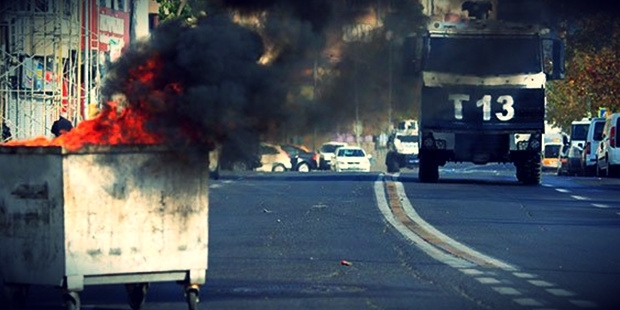Etyen Mahçupyan
Sustainable conflict relations have a simple rule. Since both parties do not take any offense at the conflict, the more advantaged side is expected to sustain the existing conflict conditions, while the disadvantaged party is expected to change the situation and redress the balance. However, one rarely comes across an advantaged party that sides with a change in conditions. Such a demand is convincing only in two cases: Those siding with that thinking are either against the conflict in principle or they are engaging in opportunism or a kind of ideological fraud to turn the conflict further in their favor.
In the context of the Kurdish question, we are currently looking at such a case. As the writings of the PKK proponents indicate, the organization has got the best of the recent conflict period and the following period is likely to favor the organization. The only secular, modern and consequently credible agent in the Middle East, which has the support of Russia, the U.S. and Iran and expanded its radius of action by making agreements with Bashar Assad and DAESH, is in question here. Besides, it has been explicitly asserted that the ditch and barricade strategy ultimately favored the PKK. According to claims, although there was a mild reaction to the organization in the region at first, the state's growing pressure and security forces' libelous practices created a total opposite tendency over time. According to them, a vast majority of the region's people sympathize with the organization.
Let's assume that all these observations are true. This means that the PKK is maintaining a successful strategy. In this case, which position can one possibly defend as a PKK proponent or a Justice and Development Party (AK Party) dissident? Of course, one would want the continuity of the circumstances and want the PKK to maintain its activities while expecting the AK Party to be further defeated.
On the other hand, if you are an AK Party proponent and/or a PKK dissident, you could possibly recommend that the state change the conditions and speak of the disadvantages of maintaining the conflict as it currently is.
However, the exact opposite situation has appeared on the scene. While government proponents declare some opinions implying that maintaining the conflict is right, the PKK sympathizers assert that reinitiating negotiations is necessary. Unfortunately, there is no reason to believe that this demand is humane or principled. The characteristics this group attributes to itself, such as "emancipatory" and "pacifist," only make sense in an ironic way. In terms of realpolitik, this demand is a little strange. If you are gaining the advantage every single day under those circumstances, then why would you want to go back to negotiations? Doesn't it make more sense to increase gains for a while, press them upon the AK Party and then ask for negotiations?
Or, is a kind of farsightedness in question here? Has it been calculated that conditions and balances will change soon even though the conditions are favorable now? But, why would the government end the conflict in this case? If sitting at a table in the most advantageous position is the main thing, the opponent will of course look at the issue through this lens. But this is presumably what is desired: The PKK will continue to walk this path successfully while everyone shows consent to it. The organization will not give anything away but will take anything it wants while the state withdraws from the region.
Politics has a simple pursuit: If you want the opposite party to behave differently, you have to take the first step. Apparently, the PKK and its proponents are still under the influence of adolescence. They do not want to pay a cost even while building their dreams on the pain of others.


